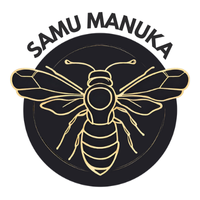Manuka honey remains as one of the most wonderous natural substance when it comes to versatility in wellness. Most people know of it for its potent antimicrobial and anti-inflammatory properties when used topically or consumed. There are however many other spectacular capabilities that Manuka carries according to research. For instance, did you know that Manuka honey can help stimulate tissue regeneration, especially for the skin? Here's what it does:
Manuka honey contains methylglyoxal (MGO), a compound with potent antimicrobial activity that helps protect wounds from infection and supports an optimal environment for healing. Its anti-inflammatory properties such as MGO and Leptosperin can reduce swelling and promote tissue repair.
Manuka honey influences immune cell activity, enhancing the healing process. It has been found to modulate cytokine production, which aids in tissue repair and regeneration.
A 2023 study revealed that Manuka honey activates the Aryl Hydrocarbon Receptor (AhR) in skin cells. This receptor plays a role in regulating skin inflammation and promoting cellular repair, contributing to regeneration during wound healing.
The honey’s high content of polyphenols and flavonoids combats oxidative stress, which can damage cells and slow healing. This antioxidant activity fosters an environment conducive to regeneration.
Due to all these methods of healing, many people opt into using and find great success with Manuka honey for things like acne. The Manuka honey kills the microbial culprit, reduces the inflammation, gently exfoliates the pores, and stimulates the tissue regeneration (which helps reduce acne scarring) all the while moisturizing the skin.
These combined effects are also the reason Manuka honey is FDA approved for medical use, and used in hospitals for skin treatments.
Sources:
https://kclpure.kcl.ac.uk/portal/en/publications/manuka-honey-activates-the-aryl-hydrocarbon-receptor-implications
https://pmc.ncbi.nlm.nih.gov/articles/PMC6023338/
https://pmc.ncbi.nlm.nih.gov/articles/PMC8386265/
https://www.eurekaselect.com/article/85684
https://www.nature.com/articles/s41598-020-70186-9
This is not medical advice.
